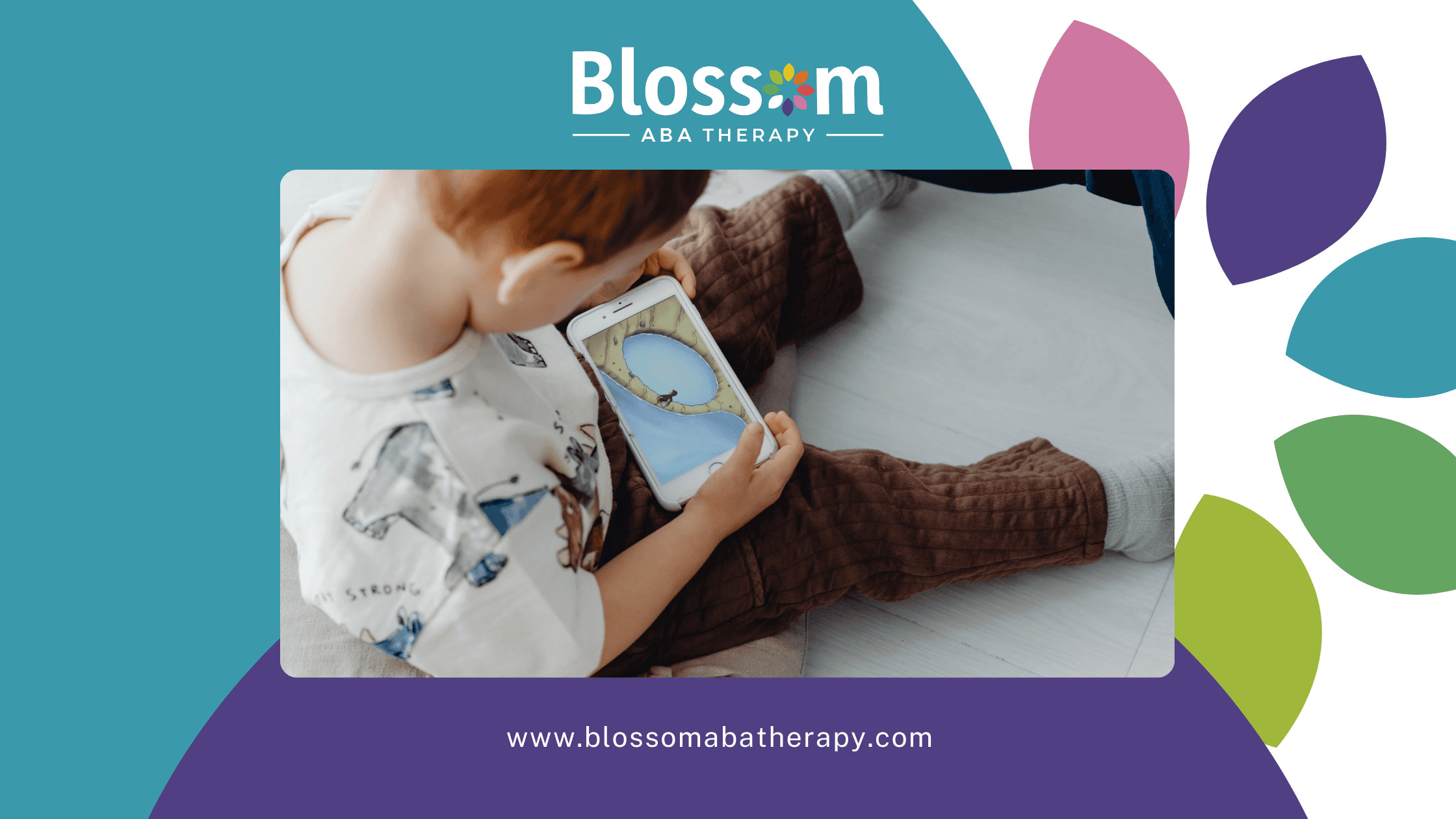Our New Clinic in Peachtree Corners is Now Open! Serving families in Norcross, Dunwoody, Sandy Springs, Duluth, Johns Creek, Alpharetta, Roswell, Suwanee, Brookhaven & nearby areas.

How to Get Autistic Kids to Listen to You
Sep 13, 2025

How to Get Autistic Kids to Listen to You
Sep 13, 2025

How to Get Autistic Kids to Listen to You
Sep 13, 2025

How to Get Autistic Kids to Listen to You
Sep 13, 2025
Learn how to get your autistic child to listen and respond at home. Simple ABA tips for parents that reduce stress and build stronger connections.
Getting autistic kids to listen can feel tough at times, but it’s not about “forcing” them to pay attention. It’s about finding the right approach that works for their unique needs.
With patience, consistency, and the right strategies, communication can become easier and less stressful for both parents and children.
Every child is different, but some approaches can make listening and following directions more natural:
Use Clear and Simple Language
Autistic kids often do best with direct instructions. Instead of saying, “Can you please go upstairs, find your shoes, and bring them down here before we leave?”, try breaking it into steps:
“Go upstairs.”
“Get your shoes.”
“Bring them here.”
Get Their Attention First
Make sure your child is looking at you or is focused before giving directions. A gentle touch on the shoulder or calling their name can help.
Visual Supports Work Wonders
Pictures, charts, or written reminders can make instructions easier to understand and remember. Many kids with autism process visuals better than spoken words.
Praise and Positive Reinforcement
Celebrate small wins! Saying, “Great job listening!” or offering a high-five can motivate kids to keep listening in the future.
Helping autistic kids listen is about patience, practice, and using strategies tailored to them. If you’re looking for professional support, Blossom ABA Therapy offers ABA therapy in Georgia, Tennessee, Virginia, and North Carolina. Services include home-based ABA therapy, center-based ABA therapy, and school-based ABA therapy.
Ready to support your child’s growth? Contact Blossom ABA Therapy today!
FAQs
1. Why doesn’t my autistic child listen to me?
It’s often not about “not listening” but processing. Kids with autism may need simpler, clearer instructions or extra time to respond.
2. Do rewards really help autistic kids listen?
Yes! Positive reinforcement, like praise or small rewards, can motivate kids and build good listening habits.
3. Can ABA therapy improve listening skills?
Absolutely. ABA therapy teaches communication and listening strategies tailored to each child’s needs.
Sources:
https://www.autism.org.uk/advice-and-guidance/topics/behaviour/organising-and-prioritising/all-audiences
https://www.autismspeaks.org/expert-opinion/how-get-autistic-child-listen
https://www.autismspeaks.org/blog/five-tips-helped-improve-my-childs-behavior
https://www.autismparentingmagazine.com/get-autistic-child-to-listen/
https://www.nhs.uk/conditions/autism/autism-and-everyday-life/help-with-behaviour/
Getting autistic kids to listen can feel tough at times, but it’s not about “forcing” them to pay attention. It’s about finding the right approach that works for their unique needs.
With patience, consistency, and the right strategies, communication can become easier and less stressful for both parents and children.
Every child is different, but some approaches can make listening and following directions more natural:
Use Clear and Simple Language
Autistic kids often do best with direct instructions. Instead of saying, “Can you please go upstairs, find your shoes, and bring them down here before we leave?”, try breaking it into steps:
“Go upstairs.”
“Get your shoes.”
“Bring them here.”
Get Their Attention First
Make sure your child is looking at you or is focused before giving directions. A gentle touch on the shoulder or calling their name can help.
Visual Supports Work Wonders
Pictures, charts, or written reminders can make instructions easier to understand and remember. Many kids with autism process visuals better than spoken words.
Praise and Positive Reinforcement
Celebrate small wins! Saying, “Great job listening!” or offering a high-five can motivate kids to keep listening in the future.
Helping autistic kids listen is about patience, practice, and using strategies tailored to them. If you’re looking for professional support, Blossom ABA Therapy offers ABA therapy in Georgia, Tennessee, Virginia, and North Carolina. Services include home-based ABA therapy, center-based ABA therapy, and school-based ABA therapy.
Ready to support your child’s growth? Contact Blossom ABA Therapy today!
FAQs
1. Why doesn’t my autistic child listen to me?
It’s often not about “not listening” but processing. Kids with autism may need simpler, clearer instructions or extra time to respond.
2. Do rewards really help autistic kids listen?
Yes! Positive reinforcement, like praise or small rewards, can motivate kids and build good listening habits.
3. Can ABA therapy improve listening skills?
Absolutely. ABA therapy teaches communication and listening strategies tailored to each child’s needs.
Sources:
https://www.autism.org.uk/advice-and-guidance/topics/behaviour/organising-and-prioritising/all-audiences
https://www.autismspeaks.org/expert-opinion/how-get-autistic-child-listen
https://www.autismspeaks.org/blog/five-tips-helped-improve-my-childs-behavior
https://www.autismparentingmagazine.com/get-autistic-child-to-listen/
https://www.nhs.uk/conditions/autism/autism-and-everyday-life/help-with-behaviour/
Getting autistic kids to listen can feel tough at times, but it’s not about “forcing” them to pay attention. It’s about finding the right approach that works for their unique needs.
With patience, consistency, and the right strategies, communication can become easier and less stressful for both parents and children.
Every child is different, but some approaches can make listening and following directions more natural:
Use Clear and Simple Language
Autistic kids often do best with direct instructions. Instead of saying, “Can you please go upstairs, find your shoes, and bring them down here before we leave?”, try breaking it into steps:
“Go upstairs.”
“Get your shoes.”
“Bring them here.”
Get Their Attention First
Make sure your child is looking at you or is focused before giving directions. A gentle touch on the shoulder or calling their name can help.
Visual Supports Work Wonders
Pictures, charts, or written reminders can make instructions easier to understand and remember. Many kids with autism process visuals better than spoken words.
Praise and Positive Reinforcement
Celebrate small wins! Saying, “Great job listening!” or offering a high-five can motivate kids to keep listening in the future.
Helping autistic kids listen is about patience, practice, and using strategies tailored to them. If you’re looking for professional support, Blossom ABA Therapy offers ABA therapy in Georgia, Tennessee, Virginia, and North Carolina. Services include home-based ABA therapy, center-based ABA therapy, and school-based ABA therapy.
Ready to support your child’s growth? Contact Blossom ABA Therapy today!
FAQs
1. Why doesn’t my autistic child listen to me?
It’s often not about “not listening” but processing. Kids with autism may need simpler, clearer instructions or extra time to respond.
2. Do rewards really help autistic kids listen?
Yes! Positive reinforcement, like praise or small rewards, can motivate kids and build good listening habits.
3. Can ABA therapy improve listening skills?
Absolutely. ABA therapy teaches communication and listening strategies tailored to each child’s needs.
Sources:
https://www.autism.org.uk/advice-and-guidance/topics/behaviour/organising-and-prioritising/all-audiences
https://www.autismspeaks.org/expert-opinion/how-get-autistic-child-listen
https://www.autismspeaks.org/blog/five-tips-helped-improve-my-childs-behavior
https://www.autismparentingmagazine.com/get-autistic-child-to-listen/
https://www.nhs.uk/conditions/autism/autism-and-everyday-life/help-with-behaviour/
Getting autistic kids to listen can feel tough at times, but it’s not about “forcing” them to pay attention. It’s about finding the right approach that works for their unique needs.
With patience, consistency, and the right strategies, communication can become easier and less stressful for both parents and children.
Every child is different, but some approaches can make listening and following directions more natural:
Use Clear and Simple Language
Autistic kids often do best with direct instructions. Instead of saying, “Can you please go upstairs, find your shoes, and bring them down here before we leave?”, try breaking it into steps:
“Go upstairs.”
“Get your shoes.”
“Bring them here.”
Get Their Attention First
Make sure your child is looking at you or is focused before giving directions. A gentle touch on the shoulder or calling their name can help.
Visual Supports Work Wonders
Pictures, charts, or written reminders can make instructions easier to understand and remember. Many kids with autism process visuals better than spoken words.
Praise and Positive Reinforcement
Celebrate small wins! Saying, “Great job listening!” or offering a high-five can motivate kids to keep listening in the future.
Helping autistic kids listen is about patience, practice, and using strategies tailored to them. If you’re looking for professional support, Blossom ABA Therapy offers ABA therapy in Georgia, Tennessee, Virginia, and North Carolina. Services include home-based ABA therapy, center-based ABA therapy, and school-based ABA therapy.
Ready to support your child’s growth? Contact Blossom ABA Therapy today!
FAQs
1. Why doesn’t my autistic child listen to me?
It’s often not about “not listening” but processing. Kids with autism may need simpler, clearer instructions or extra time to respond.
2. Do rewards really help autistic kids listen?
Yes! Positive reinforcement, like praise or small rewards, can motivate kids and build good listening habits.
3. Can ABA therapy improve listening skills?
Absolutely. ABA therapy teaches communication and listening strategies tailored to each child’s needs.
Sources:
https://www.autism.org.uk/advice-and-guidance/topics/behaviour/organising-and-prioritising/all-audiences
https://www.autismspeaks.org/expert-opinion/how-get-autistic-child-listen
https://www.autismspeaks.org/blog/five-tips-helped-improve-my-childs-behavior
https://www.autismparentingmagazine.com/get-autistic-child-to-listen/
https://www.nhs.uk/conditions/autism/autism-and-everyday-life/help-with-behaviour/
How to Get Autistic Kids to Listen: Proven ABA Strategies
How to Get Autistic Kids to Listen: Proven ABA Strategies


Seeking Support?
We're Here to Help!
Our dedicated professionals specialize in ABA therapy to foster your child's growth and happiness. We're here to provide the personalized care and attention your child deserves. Reach out to learn how we can support your family's journey.
Connect With Our ABA Experts Today.
News & Blogs
News & Blogs
Latest News & Blogs
Latest News & Blogs
Latest News & Blogs
Latest News & Blogs

ARE YOU PASSIONATE ABOUT HELPING CHILDREN
ARE YOU PASSIONATE ABOUT HELPING CHILDREN
Join Our Team
Join Our Team
Join Our Team
Join Our Team
Blossom Therapy constantly seeks qualified BCBAs and RBTs to fill full and part-time positions.
Blossom Therapy constantly seeks qualified BCBAs and RBTs to fill full and part-time positions.
Blossom Therapy constantly seeks qualified BCBAs and RBTs to fill full and part-time positions.
Blossom Therapy constantly seeks qualified BCBAs and RBTs to fill full and part-time positions.






